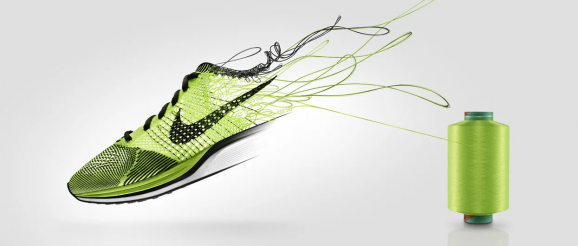Nike Flyknit: An Innovation that Defined a Sneaker Era

The Origin of Nike Flyknit
Nike introduced its Flyknit technology in 2012 and little did they know it would define an era of sneakers. Their goal was to create a material that is high-performing, comfortable, and eco-friendly. Their new technology, which debuted with the Flyknit Racer, would go on to achieve much more than its original goals. By the time the material was at its peak, it would top Nike sales in running, training, basketball, soccer, lifestyle, and more.
The Evolution of Flyknit
The Flyknit project, with the goal to revolutionize footwear, took 10 years to complete. The material was to be light and durable, but also be less wasteful than traditional cut-and-sew sneakers. The material also resulted in 60% less waste than a traditional pair of sneakers, Nike did its job. In 2016, Nike upped the ante by transitioning all core yarn used in the shoes to that sourced from recycled polyester. Now not only did Nike reduce manufacturing waste, but it also literally took waste out of landfills. In a short time, Nike had evolved this new technology to stand amongst its best innovations. It put itself in the same conversation as the Nike waffle sole and the Nike air unit.
The Hits
Nike Lunar Flyknit HTM
Many Flyknit silhouettes couldn’t stay on shelves upon their release and are still desirable today. Arguably the most impactful of these sneakers is the Nike Lunar Flyknit HTM White/ Black/ Volt. Hiroshi Fujiwara, Tinker Hatfield, and Mark Parker all collaborated to design the shoe – Hence HTM. The mark made on the shoe by these three sneaker legends resulted in them being highly sought after. If you wanted to secure a pair today it’d cost at least 4-figures.
Image via KicksOnFire
Nike Flyknit Racer
Alongside the HTMs, of course, are the Nike Flyknit Racers. The Racer – the first ever shoe featuring the new technology – was an instant hit. The silhouette perfectly combined aesthetics and performance. In the London 2012 Olympics, Kenyan marathon runner Abel Kirui took home the silver medal in this shoe.
Nike Flyknit Trainer
Additionally, Nike produced another hit with the Flyknit Trainer. This silhouette boomed onto the sneaker scene after Kanye West wore them. Closely resembling the Racer, the Trainer also managed to combine aesthetics and performance. The shoe was a go-to for athletes at the gym but also tied together casual outfits.
Image via Titolo
Nike Lunar Flyknit Chukka
Another iconic Silhouette that made an impact on the sneaker scene is the Nike Lunar Flyknit Chukka. While the previous models were performance-oriented, Nike took a lifestyle approach with the Chukka design. This pair quickly became a fall staple for most sneakerheads as it paired perfectly with sweatpants and jeans. With a Flyknit upper and Lunar midsole, this shoe could certainly be used for performance in a pinch as well.
Image via Titolo
Nike Kobe 9 Elite
Finally, no list of iconic Nike Flyknit silhouettes is complete without the Nike Kobe 9 Elite. The Nike Kobe 9 Elite took full advantage of the technology’s low weight, high breathability, and compression. Flyknit allowed for this shoe to remain performant and lightweight while granting Kobe stability in his ankles. This was much-needed for Kobe post having Achilles surgery. A reference to Kobe’s Achilles injury appears on the back of the shoe. The horizontal lines stacked up above the heel are representative of surgical sutures. Kobe added this design aspect to remind him of his Achilles surgery.
Image via Hypebeast
Did we miss any iconic silhouettes? Do you remember rocking any of these yourself? Would you want to see Nike bring the Flyknit wave back? Let us know below. While you’re at it, check out these five sneakers that we think need to be re-released ASAP.
Featured Image via Nike
